Short answer: entering menopause before you’re 45 can trim a few years off your overall lifespan—roughly three to four years on average—and it nudges up the chances of heart disease, diabetes, and bone loss. It does not mean you’re destined for an early death, but it does signal that extra attention to health‑saving habits can make a big difference.
Think of it like getting a “weather alert” for your body. The forecast says there’s a higher chance of rain (heart issues, diabetes), but with the right umbrella (screening, lifestyle tweaks, possibly hormone therapy) you can stay dry and still enjoy the day.
Research Study Overview
Scientists have been tracking large groups of women for decades to see how the timing of menopause lines up with later health outcomes. Two especially robust pieces of evidence shape what we know today.
- A 2021 meta‑analysis of 16 studies involving 321,233 women found that women who entered menopause early (40‑44 years) faced a 5‑8 % higher risk of all‑cause mortality compared with those who went through it later.
- The Rotterdam Study (3,650 post‑menopausal women) showed that early menopause cut overall life expectancy by about 3.5 years, and by 4.6 years for women who never developed diabetes.
Both investigations used prospective cohort designs—meaning they followed real people over many years, collecting health data as it happened—so the numbers feel grounded in everyday life rather than theoretical models.
Early vs Premature
First, let’s clear up the terminology. “Premature menopause” is the big‑guy: it happens before age 40. “Early menopause” sits a little later, between 40 and 44 years. The health impact gets steeper the sooner the transition occurs.
Here’s a quick snapshot:
| Category | Typical Age | All‑Cause Mortality ↑ | Average Life‑Expectancy Loss |
|---|---|---|---|
| Premature | < 40 | ~10 % higher | ≈ 2 years* |
| Early | 40‑44 | ~5‑8 % higher | ≈ 3‑4 years |
| Normal | 45‑54 | Baseline | Reference |
*Exact loss varies by study; the figure is a rough average from several cohort analyses.
Health Risks Overview
Why does an earlier shutdown of the ovaries matter? Estrogen—the hormone that quiets down during menopause—acts like a protective shield for many systems. When that shield goes up early, several health doors start to swing open.
| Condition | How Early Menopause Affects It | Key Evidence |
|---|---|---|
| Heart disease | Loss of estrogen accelerates arterial stiffening and raises LDL (“bad”) cholesterol. | Meta‑analysis of cardiovascular outcomes (Maturitas, 2009) |
| Type 2 diabetes | ~2 × higher incidence; shortens years lived without diabetes. | Rotterdam Study (2018) |
| Osteoporosis & fractures | Faster bone‑density loss, especially in the lumbar spine. | Mayo Clinic Cohort (2010) |
| Mood & cognition | Higher rates of anxiety, depression, and later‑life cognitive decline. | Shuster et al., 2009 review |
Think of estrogen like a “maintenance crew.” When the crew leaves early, the building (your body) needs extra repairs, and those repairs can be costly if you don’t schedule them.
Why It Matters
Numbers alone can feel cold, but they translate into very personal experiences. Imagine two 70‑year‑old friends—Sara, who hit menopause at 42, and Maya, who transitioned at 52. Both love gardening, but Sara has recently been diagnosed with high blood pressure and a mild case of osteoporosis, while Maya’s check‑ups are clean. Their stories illustrate how a few extra “menopause‑free” years can affect day‑to‑day enjoyment.
Beyond the personal, life‑expectancy data help public‑health planners allocate resources for screening programs, and they guide clinicians in deciding when to discuss hormone‑replacement therapy (HRT) or more aggressive lifestyle interventions.
Managing Risk Strategies
Good news: you can tilt the odds back in your favor. Below are evidence‑based steps that have shown real benefit.
- Consider HRT (if appropriate). Starting hormone therapy soon after early menopause can restore some of estrogen’s protective effects on the heart, bone, and glucose metabolism. It’s not a blanket fix—individual risk factors (like a personal or family history of breast cancer) must be weighed.
- Heart‑healthy lifestyle. Aim for at least 150 minutes of moderate aerobic activity per week, follow a Mediterranean‑style diet rich in olive oil, nuts, fish, and veggies, and keep blood pressure and cholesterol in check.
- Monitor blood sugar. Early menopause raises diabetes risk, so an annual fasting glucose or HbA1c test is wise—even if you feel fine.
- Strength training for bone. Weight‑bearing exercises (like walking, dancing, or light resistance work) two to three times a week help preserve bone density.
- Stress management. Chronic stress can aggravate both heart disease and glucose spikes. Practices such as mindfulness, yoga, or simple deep‑breathing break that cycle.
Think of these actions as “maintenance upgrades” you install after the crew leaves early—each one adds extra mileage to your life‑span vehicle.
Key Takeaways Summary
• Early menopause (40‑44 y) is linked with a modest reduction in overall life expectancy—about three to four years on average.
• The reduction is driven mainly by higher rates of cardiovascular disease, type 2 diabetes, osteoporosis, and mood disorders.
• Hormone therapy, when medically appropriate, can offset some risks, but lifestyle changes are the cornerstone of long‑term protection.
• Regular screening for blood pressure, cholesterol, glucose, and bone density is essential, especially if you entered menopause before 45.
• Every woman’s story is unique; personal risk assessment with a trusted health professional is the best way to turn these statistics into a usable plan.
Final Thoughts Section
Knowing that early menopause can shave a few years off your timeline might feel unsettling, but it also empowers you. You now have a clearer roadmap: talk to your doctor about hormone options, schedule those routine screenings, and embrace heart‑smart habits. Remember, the goal isn’t to add years for the sake of numbers—it’s to add quality, vibrancy, and moments you love.
What’s your experience with early menopause? Have you found a tip or a treatment that made a real difference? Share your story in the comments—you might just help another woman feel less alone on this journey.
If you have questions or need guidance on the next steps, don’t hesitate to reach out to a qualified health professional. Together we can turn the “early‑menopause” alarm into a call for proactive, confident living.


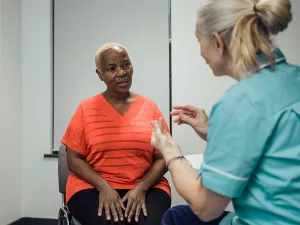





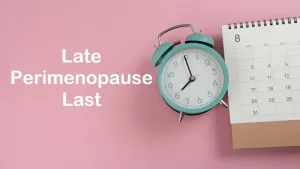


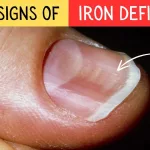






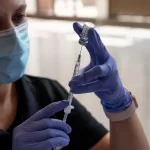





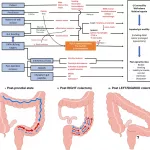
Leave a Reply
You must be logged in to post a comment.